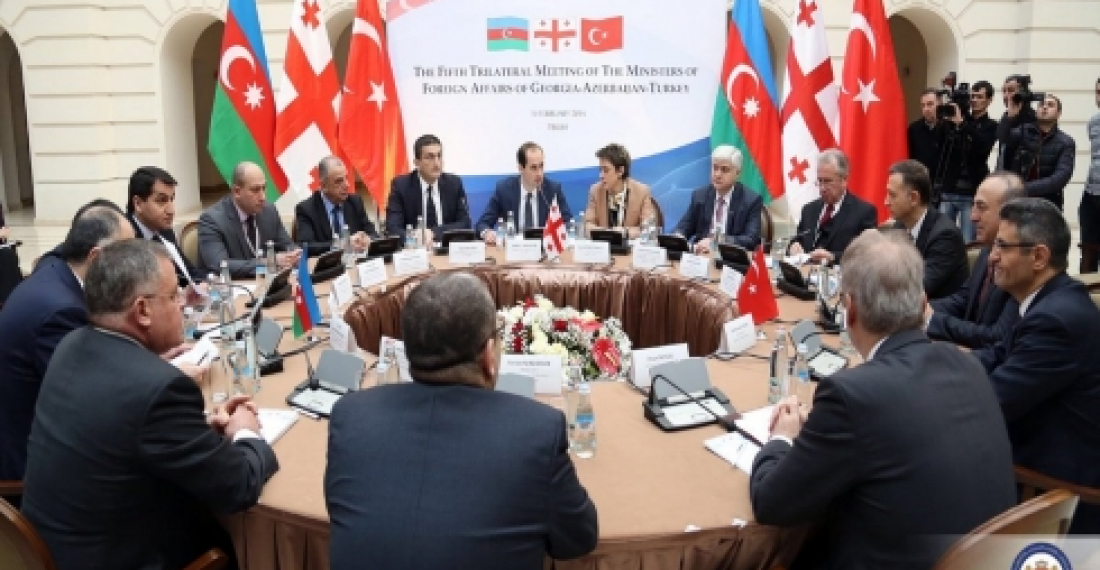On 19 February 2016, Tbilisi hosted the fifth trilateral meeting between Georgian Foreign Minister Mikheil Janelidze, Azerbaijani Foreign Minister Elmar Mammadyarov and Foreign Minister of Turkey Mevlüt Çavuşoğlu.
In the frames of the meeting, the Foreign Ministers signed the Tbilisi Statement. The statement emphasizes the importance of projects on regional cooperation among the three countries and states a position on the conflicts that Azerbaijan and Georgia are concerned by. The document also reiterates respect and support for the territorial integrity, sovereignty, and internationally recognized borders of Azerbaijan and Georgia.
During his speech Azerbaijani Foreign Minister Elmar Mammadyarov said, "the high-level of bilateral and trilateral relations, regular meetings in such format play an important role in deepening of strategic partnership between our countries and give us a chance to revise our cooperation in different fields."
He emphasised the trilateral projects envisaged by the Trilateral Sectoral Cooperation Action Plan for 2013-2015 and importance of the developing transport infrastructure.
Mammadyarov also spoke about the regional projects that bring together the most important regions of Eurasia and will be a key segment of the corridor between the East and the West.
"Starting now successfully implemented the BTC project, we has initiated a number of important projects in the region. Azerbaijan connects the most important regions of Eurasia via implementation of the projects of the Southern Gas Corridor, the main lines of which are the Trans Anatolian Pipeline -TANAP, the Baku-Tbilisi-Kars railway project and new Baku international trade port. The Baku-Tbilisi-Kars railway and new Baku International Trade Port will be the main segments of the East-West Corridor."
Also Mammadyarov said there were obstacles to peace and development in the region. In particular, he said "Failure in the settlement of the Armenian-Azerbaijan conflict is the greatest threat to peace, stability in the region and regional cooperation. And due to its occupation policy Armenia is out of all regional projects."
The Foreign Ministers will also visit the Georgian section of the Baku-Tbilisi-Kars railway, which is practically completed and the testing of which was successfully conducted in 2015.
source: commonspace.eu with mfa.gov.az, mfa.gov.ge and apa.az
photo: V-я trilateral meeting between the Georgian, Azerbaijani and Turkish Foreign Ministers (courtesy of day.az)







